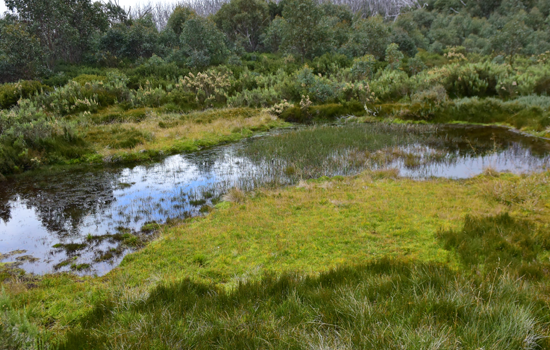A new project in north-west England is exploring the potential of rewetting peatlands to support crop growth while simultaneously cutting carbon emissions. Known as “wetter farming,” or paludiculture, this practice involves the use of wet peatlands for agriculture, a concept that dates back centuries in the UK. Traditionally, peatlands were drained for farming, but this process has caused significant environmental harm, including the release of stored carbon into the atmosphere. As a result, the UK is now re-evaluating the value of these wetland areas.
The wetter farming initiative seeks to restore peatlands to their naturally waterlogged state, which not only preserves these vital ecosystems but also reduces carbon emissions. Peatlands are a major carbon sink when left undisturbed, but draining them releases large quantities of carbon dioxide. The project aims to reverse this damage by rehydrating these soils while allowing for agriculture to continue.
Through the international Palus Demos project, the goal is to help farmers grow crops in boggier conditions. The project is being tested in sites around north-west England, the Midlands in Ireland, and outside Amsterdam in the Netherlands. The trials involve rewetting previously drained peatlands, creating a more sustainable approach to farming that could benefit both the environment and local farmers. The project focuses on using techniques like blocking drainage ditches, removing underground drains, and installing barriers to manage water levels.
Crops that thrive in wetter conditions are being trialed, including cabbage, blueberries, rhubarb, cranberries, and even bulrushes, which can be used for building materials and eco-textiles. Non-food crops like sphagnum moss, which is used in horticultural compost, are also being cultivated. These crops provide alternatives for farmers, allowing them to diversify their output while helping restore peatlands.
A key challenge for the project is ensuring its financial viability. While rewetting peatlands offers significant environmental benefits, farmers need to be assured that they can still make a profit. The economic aspect of wetter farming will be crucial to its success. Trials are being carefully monitored to assess both crop yields and the reduction in greenhouse gas emissions. One trial, in Winmarleigh, Lancashire, has already shown an 86% reduction in CO2 emissions from rewetting peat.
In addition to exploring crop viability, the project is looking into financial incentives to support wetter farming. Green finance options like carbon-offset schemes and countryside stewardship payments from the UK government are being considered as potential sources of funding. These initiatives could help make wetter farming more financially attractive to farmers.
While the process of rewetting peatlands can be challenging in the short term particularly for farmers used to draining their land many farmers have struggled with unproductive drained peat soils. For these farmers, wetter farming could provide a way to bring land back into production, helping them restore productivity and profitability.
If successful, the wetter farming trials could be implemented more widely, not only in the UK but also in other regions with significant areas of drained peatland. The project’s findings could pave the way for a more sustainable future in agriculture, where farming can coexist with environmental conservation.

